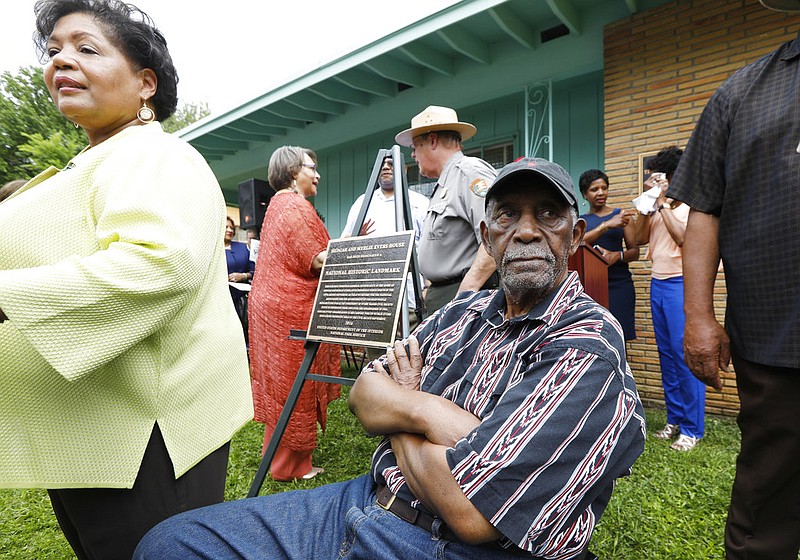JACKSON, Miss. — Charles Evers, the older brother of slain civil-rights leader Medgar Evers and a longtime figure in Mississippi politics, died Wednesday. He was 97.
Evers died of “natural causes” at a home in the Jackson, Miss., suburb of Brandon, where he was surrounded by relatives, Rankin County Coroner David Ruth told The Associated Press. Ruth said the cause of death was not the coronavirus, and no autopsy is planned.
Charles and Medgar Evers both served in the military during World War II, and they became active in the NAACP when they returned to their home state of Mississippi and continued to face discrimination.
Medgar Evers had been field secretary for the Mississippi NAACP for more than eight years when he was assassinated outside his Jackson home in June 1963. In 1968, a former fertilizer salesman and self-avowed white supremacist, Byron De La Beckwith, went on trial twice in the killing, but all-white juries deadlocked and did not convict him.
The case was later revived, and a jury of eight African Americans and four white people convicted Beckwith of murder in 1994. The Mississippi Supreme Court upheld that conviction in 1997.
“Before, the killer of a Black man would go free. Now we know you just can’t go out and kill a Black man or woman and nothing is done,” Charles Evers said after that Supreme Court decision. “Justice finally came.”
Charles Evers was appointed to lead the Mississippi NAACP after his brother was killed. In 1969, he was elected mayor of the southwestern Mississippi town of Fayette, becoming the first Black mayor of a multiracial town in the state since Reconstruction.
During his widely varied career, Charles Evers ran several businesses in Chicago and Mississippi. A Mississippi Blues Trail marker commemorates his career as a concert promoter with blues legend B.B. King, and it notes that Charles Evers was once in the bootleg liquor business.
Charles Evers ran unsuccessfully for an open U.S. House seat as a Democrat in 1968. He served on the Democratic National Committee in the mid-1970s.
He ran unsuccessfully as an independent for Mississippi governor in 1971 and for a U.S. Senate seat in 1978.
Evers endorsed Ronald Reagan for president in 1980, and served as a delegate to the Republican National Convention in 1996. He publicly supported Democrat Barack Obama for president in 2008 and 2012. After the 2016 presidential election, Evers cast one of Mississippi’s six electoral votes for Republican Donald Trump. Evers described himself then as an “independent Republican.”
“I’m a great believer in earning something. Democrats always want to give away something,” Evers said after the electors voted.
He said he is a longtime supporter of Trump.
“He’s a multimillionaire,” Evers said. “I like rich folks. Can’t nobody buy him.”
